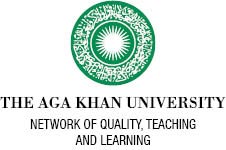Teaching
Dossiers

'In 2019, I was applying for promotion and had no idea how to prepare the teaching portfolio. All I could manage was a file full of evidences with a cover letter and CV. I did not know how to write reflections, or to present my teaching philosophy, and justify why did I do all that I presented in that folder. After attending the workshop, I now understand that developing a teaching portfolio is a continuous activity, and one should keep updating it. I have started making sections of my teaching dossier and put evidences of my achievements, feedback and innovations in relevant sections’ said Mr Hussain Maqbool, Faculty at School of Nursing and Midwifery - Pakistan
The Network of Quality, Teaching and Learning (QTL_net) offered its third workshop on Developing Your Teaching Dossier, Including for Promotion on March 2nd, 4th, and 11th, 2021. The teaching dossier workshop aimed to support faculty in developing a reflective e-dossier that captures accurate and robust evidence of their teaching effectiveness and its impact on their students, peers, and institution. Thirty-two (32) faculty members and academic support staff from different disciplines attended the six-hour workshop spread over three days.
'The workshop was so enlightening in the sense that: first, I understood what a teaching dossier was and how to develop the various components. Secondly, the importance of reflective practice was emphasised, and its implication to become an effective educator. Finally, I learned how to develop the teaching dossier both manual and e-dossier, and I’m happy to share that my teaching dossier is ‘under-development,’ something [for which] I give credit to the facilitators and the entire QTL net team for their sacrificial support', said Mr Festus Mulakoli, Faculty at School of Nursing and Midwifery - Kenya, who attended this year’s teaching dossier workshop.
The three-day workshop comprised a step-by-step approach to help participants engage in reflection and reflective writing, develop their teaching philosophy statement, reflect on their teaching practices, and gather strong evidences to showcase the impact of these teaching practices on students' learning. Through large group discussions, hands-on experiences in small groups, and a variety of examples and resources, the workshop enabled participants to develop initial drafts of their teaching philosophy statements and teaching dossiers and share with peers and facilitators for feedback.
Going forward, Mr Hussain Maqbool recommended this workshop to all AKU faculty members:
'I would suggest that every faculty member should attend this workshop as it will help them learn ways to collect and save the evidence for developing a teaching dossier. It would be beneficial for new faculty members to learn it early in this journey so they can act on the continuous feedback and learn from the [practice of reflection]'


